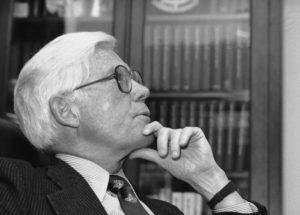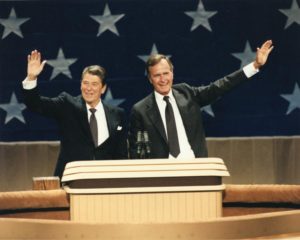Ronald Reagan and his fellow Republicans made lots of hay in 1980 about the “spiraling” budget deficit during that presidential election year. It totaled a whopping $40 billion.
The GOP presidential nominee’s campaign ridiculed those big-spending Democrats en route to a smashing landslide election victory over President Jimmy Carter.
Ah, yes. Republicans were the party of “fiscal responsibility.”
Hah! Not any longer. The Congressional Budget Office projects that the current fiscal year will end with an $800 billion budget deficit and will surpass $1 trillion by the next fiscal year.
Hey, what happened? Oh, it’s that tax cut that the Republicans wrote into law — at the insistence of Donald J. Trump, and the $1.3 trillion spending bill approved by Congress.
What happened to fiscal restraint? Where are the controls on runaway government spending? Aren’t congressional Republicans — who control the House and the Senate — supposed to rein in free-spending tendencies usually associated with liberal Democrats?
A Democratic president, Bill Clinton, managed to craft a balanced budget in the late 1990s with help from congressional Republicans. Then came Republican George W. Bush, who succeeded Clinton in 2001. We went to war at the end of that year, but didn’t increase taxes to pay for it. The deficit soared out of control.
Democrat Barack Obama came aboard in 2009 with the economy in free fall. He pushed a tax hike and a spending boost through Congress. The economy recovered. The deficit was pared by roughly two-thirds annually by the time he left office in 2017.
Now we’re hurtling back to Square One. The deficit is exploding.
And no one in power seems to care about things that used to matter a lot.


